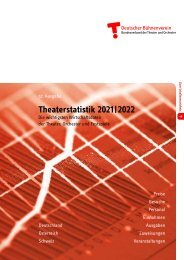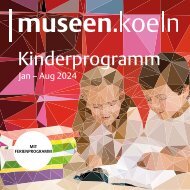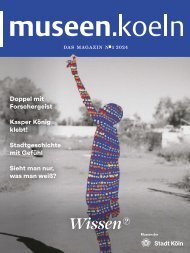Malteser International Annual Report_E
- No tags were found...
Create successful ePaper yourself
Turn your PDF publications into a flip-book with our unique Google optimized e-Paper software.
alternatives to the traditional fired brick devastating<br />
Ugandan forests, but also promotes a circular economy<br />
in the region and creates a new supply chain that<br />
increases income for local farmers. The production of<br />
the strawboard panels in turn creates jobs and training<br />
opportunities. As part of our efforts to improve the social<br />
infrastructure, we are planning additional construction<br />
projects based on this eco-friendly material<br />
Creating prospects, enabling innovation<br />
“<strong>Malteser</strong> <strong>International</strong>’s regional strategy in Africa also<br />
focuses on empowering youth for employment through<br />
improved vocational training and increasing employment<br />
opportunities,” says Roland Hansen, Head of the<br />
Africa Department at <strong>Malteser</strong> <strong>International</strong>. “Within<br />
the framework of our partnership in Uganda, we are<br />
providing job skills training for young people including<br />
refugees and developing upskilling programs in<br />
cooperation with technical colleges in the country.” This<br />
is in line with the Uganda Skills Development Project<br />
(USDP), a national action plan aimed at creating employable<br />
skills relevant to the labor market and enhancing<br />
the capacity of institutions to deliver demand-driven<br />
training programs in the construction, manufacturing<br />
and agriculture sectors. The resulting jobs and associated<br />
opportunities provide benefits for both workers at<br />
IBSF and young people around the region.<br />
Maintaining and improving innovations like the<br />
sustainable carbon-saving construction is impossible<br />
without adequate scientific research. We are therefore<br />
facilitating exchange between tertiary institutions in<br />
Germany and the renowned Makerere University in<br />
Kampala. IBSF has also helped erect a center for Sustainable<br />
Construction and Research within Makerere<br />
University campus to promote further research into<br />
eco-friendly building techniques and materials.<br />
Supporting social enterprises – a new paradigm<br />
in response to crises<br />
<strong>Malteser</strong> <strong>International</strong> has always recognized multistakeholder<br />
partnerships as uniquely powerful forces<br />
for spurring positive social development. “Social<br />
businesses can fill a gap delivering services in places<br />
where the public and private sectors have not succeeded,<br />
helping us reach the most vulnerable people in the<br />
countries we work in,” says Matthias Witt, Head of<br />
<strong>Malteser</strong> <strong>International</strong>’s Business Development Unit in<br />
Africa. In 2000, <strong>Malteser</strong> partnered with the Diocese of<br />
Mahagi-Nioka in DR Congo and the National Bureau<br />
of Medical Services to establish a pharmaceutical<br />
warehouse to cater to the health needs of the population.<br />
Six years later, the initiative Centrale D‘Achat<br />
Et D‘Approvisionnement En Médicaments Essentiels Du<br />
Nord-Ituri Et Haut Uélé (CAAMENIHU) was founded<br />
on the basis of the warehouse. Today, CAAMENIHU<br />
Uganda: Refugee assistance and development of social infrastructure<br />
Our Goals<br />
in 2018:<br />
Our<br />
achievements:<br />
Partners:<br />
Improved living conditions for South Sudanese refugees, social infrastructure and job<br />
creation through carbon-neutral construction<br />
We provided 50,000 people with access to clean drinking water every day,<br />
distributed menstrual kits to 842 girls in 4 schools, planted 100,000 seedlings to<br />
prevent desertification and soil erosion, erected classroom blocks at Rhino High<br />
School and a project office in Rhino Camp using zero-carbon materials, improved<br />
income opportunities for 300 rice farmers.<br />
IBSF, Makerere University Kampala<br />
is a successful non-profit social enterprise, providing<br />
nearly four million people in rural DR Congo access<br />
to essential medicines and medical consumables at<br />
affordable prices.<br />
Our work with social businesses is at the very<br />
core of a new movement to integrate social aims with<br />
profits, and the successes in DR Congo and Uganda are<br />
encouraging us to continue along this path. Beyond the<br />
existing limitations of traditional aid, <strong>Malteser</strong> <strong>International</strong><br />
sees the real power of these cross-sectoral partnerships<br />
in creating jobs, building resilience, promoting<br />
innovation, and spurring economic revival in disadvantaged<br />
regions.<br />
Matthias Witt<br />
Head of Business Development<br />
Unit in Africa,<br />
<strong>Malteser</strong> <strong>International</strong><br />
“Social businesses can fill<br />
a gap delivering services in<br />
places where the public and<br />
private sectors have not succeeded,<br />
helping us reach the<br />
most vulnerable people in<br />
the countries we work in.”<br />
29


















